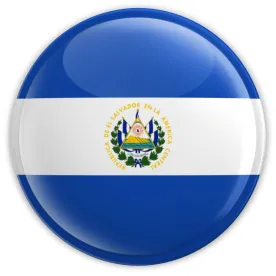On March 29, 2017, legislators in El Salvador passed a much-anticipated bill prohibiting all mining for gold and other metals. The results of the vote were unanimous and cross-party: 69 in favor, none against, and no abstentions. The bill makes El Salvador the first country in the world to institute such a blanket ban on metals mining.
The bill is succinct but comprehensive. With the exception of a transition period for small scale gold mining artisans, the law decrees an immediate, permanent ban on all exploration, extraction, and processing of metals, whether underground or above-ground. The prohibition includes exploration, extraction, or processing ore with techniques that involve cyanide of mercury – commonly used techniques in Central and South America. No license applications or old permits will be grandfathered in under the bill, which is scheduled to take effect one week after its publication in the official governmental gazette.
This new legislation comes at the heels of a lengthy investor state dispute settlement (ISDS) case between OceanaGold and the Salvadoran government. Pacific Rim – since acquired by the Australian-Canadian mining firm OceanaGold — filed a complaint in 2009 against El Salvador under the ISDS clause of the Dominican Republic-Central American Free Trade Agreement (CAFTA). Pac Rim Cayman LLC v. Republic of El Salvador (ICSID Case No. ARB/09/12). Pacific Rim, a Canadian company, originally discovered a gold mine site (El Dorado) along the Lempa River in 2002. In its complaint, Pacific Rim alleged that the investor-friendly former Salvadoran government encouraged it to spend “tens of millions of dollars to undertake mineral exploration activities” only to then institute a moratorium and withhold necessary permits once valuable deposits were discovered. Salvadoran officials stated that Pacific Rim failed to get government approval for its Environmental Impact Study, did not submit a required feasibility study, and did not meet land title and permission-to-mine requirements.
In 2012, the World Bank’s International Centre for Settlement of Investment Disputes (ICSID) found that Pacific Rim, as a Canadian company, could not invoke CAFTA. The company changed its claim, accusing El Salvador instead of violating its own investment law. From Sept. 15-22, 2014, ICSID held a hearing regarding whether El Salvador was required to issue a gold mining license to OceanaGold. OceanaGold sought either a green light for the El Dorado mine project or approximately US$300 million in compensation from the Salvadoran government. In October 2016, ICSID found in favor of El Salvador and ordered OceanaGold to pay the country US$8 million in legal costs. In March 2017, ICSID ordered OceanaGold to pay the US$8 million immediately or face the addition of 2-5 percent monthly interest.
El Salvador has since modified its investment law in an attempt to prevent disputes like the long-running OceanaGold case. Last week’s mining legislation may achieve multiple goals including increasing environmental protection, tying up loose ends in the OceanaGold case, and making a decisive statement regarding the country’s mining moratorium. This legislative development seems likely to end any hopes OceanaGold had of being able to develop or sell its El Dorado project.



 />i
/>i

